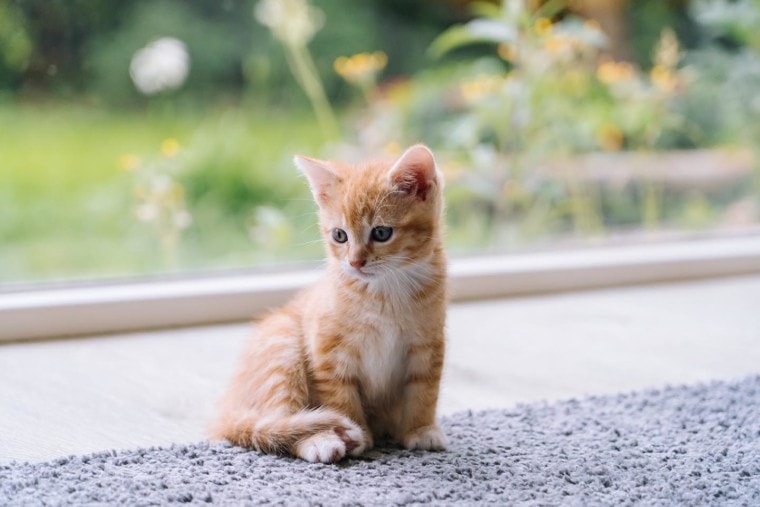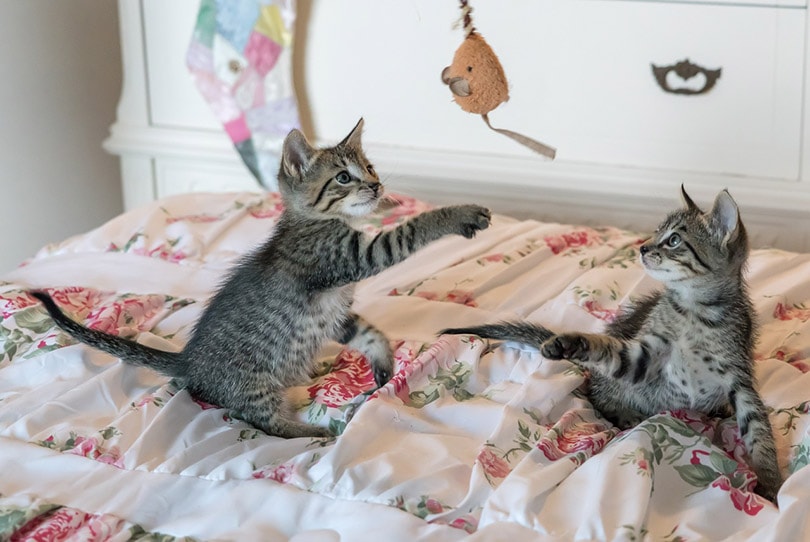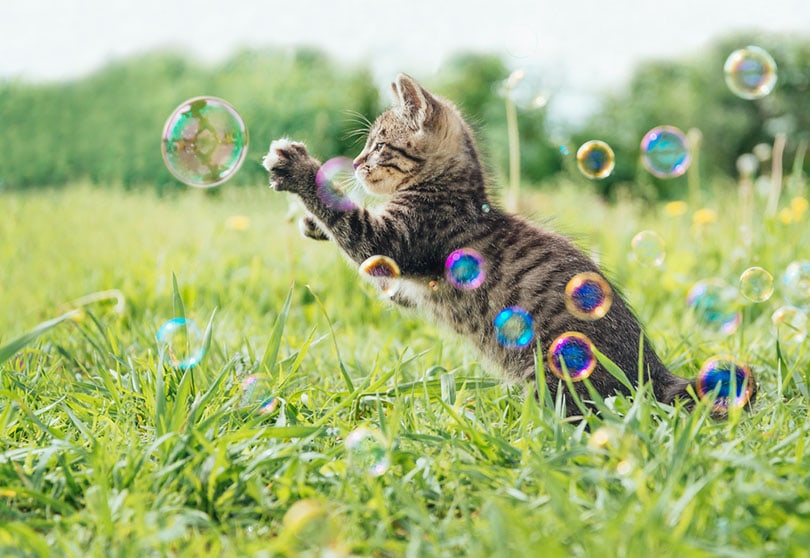
Anyone who has ever owned a kitten knows they’re adorable, fuzzy furballs. They also know that many kittens go through a wild phase. They scratch up your furniture, climb your curtains, attack your limbs, and the list goes on. This stage in your kitten’s life seems to drag on forever, and you just want to know: when will it end?!
The truth is that each cat matures at a different rate (just like people), and some kittens will calm down sooner as they age than other kittens. Read on to learn more about the growth periods of your kitten and some tips to help redirect aggressive play behavior to help save your sanity.
Growth Periods of Your Kitten
Many kittens start to calm down between the 6-to-12-month mark, but for other kittens, it can take up to 18 to 24 months to begin to show signs they’re maturing into an adult cat.

Why Is My Kitten Playing Aggressively?
If your cat is less than 2 years of age, you may notice that it plays rough. All you want to do is cuddle your fluffy kitten, but the cute fluffball just wants to scratch and attack you. As kittens age, their instincts kick in, and they want to investigate, explore, and engage in predatory behaviors to practice skills they would need to survive in the wild. At this stage, it will be very important to teach your kitten to only play, pounce, and bite their toys and that humans are off-limits for aggressive play.
How Do I Teach My Kitten Acceptable Behavior?
When your kitten starts to exhibit aggressive behavior, such as scratching you, redirect your kitten to an acceptable toy. You can do this by throwing a kitty ball for your kitten to get some energy out, or you can tease them with a soft plush toy to get them to jump on and attack the toy instead of you. When your kitten engages with the toy, disengage yourself so your kitten doesn’t go after your hands or feet again instead of the toy. Keep redirecting your kitten to its’ toys every time it tries to scratch you or the furniture. Be persistent, and your kitten will learn quickly what items are for playtime and what items shouldn’t be roughed up.
You can also set up playtimes with your kitten to make playtime a habit, and your kitten will know that you don’t need to be scratched or clawed to get you to play. If positive reinforcement isn’t working with your kitten and the behaviors are getting worse, ask your vet for a recommendation for a behaviorist to help you figure out what may be causing your kitten to continue to act out.

Other Tips and Tricks
1. Spay/Neuter
A spayed or neutered kitten will likely behave less aggressively and won’t engage in spraying behavior (urinating in the house to mark territory). Neutering your male cat will stop testosterone production, which causes aggressive behavior. For females, spaying eliminates the risk of female cancers, such as ovarian, mammary, and uterine. Most kittens calm down once they are spayed/neutered because they are no longer experiencing the need to mate.
2. Get Another Kitten
Yes, that sounds like a crazy idea when dealing with an aggressive kitten, but hear us out. Kittens love to play, and having another kitten friend means they will have someone with the same energy level to entertain each other. They’ll stop attacking you and wear themselves out playing all their crazy kitten games with each other instead.
3. Play, Play, Play!
Play often with your kitten and use positive reinforcement to encourage good behavior. Kittens may seem like they’re the Energizer Bunny, but they tend to wear out quickly and need a nap after about 10 minutes of play. If you need help with playtime because of other commitments, try an interactive cat toy, such as a motorized mouse, or a cat maze. Your cat will have fun figuring out the new toy and will give you some time to yourself without worrying about being pounced on.
Conclusion
Sometimes, owning a kitten is hard work, especially when they’re reminding you of a scratching, snarling teenager who wants to attack you. The good news is that it doesn’t last forever (although it may feel like it). Positive reinforcement and behavior redirection will help nip many of the behaviors in the bud. For many kittens, spaying/neutering will calm them right now, and you’ll bypass the teenage years with only a few gray hairs. You could also get your kitten a friend to play with, although we can’t guarantee that won’t give you more gray hair. We hope we’ve given you some options that you can use to calm your kitten down and save your sanity.
You may also want to read:
- 6 Reasons Why Kittens Bite and How to Stop It
- When Does My Kitten Become an Adult Cat? Vet Reviewed Facts & FAQ
Featured Image Credit: OlenaPalaguta, Shutterstock






